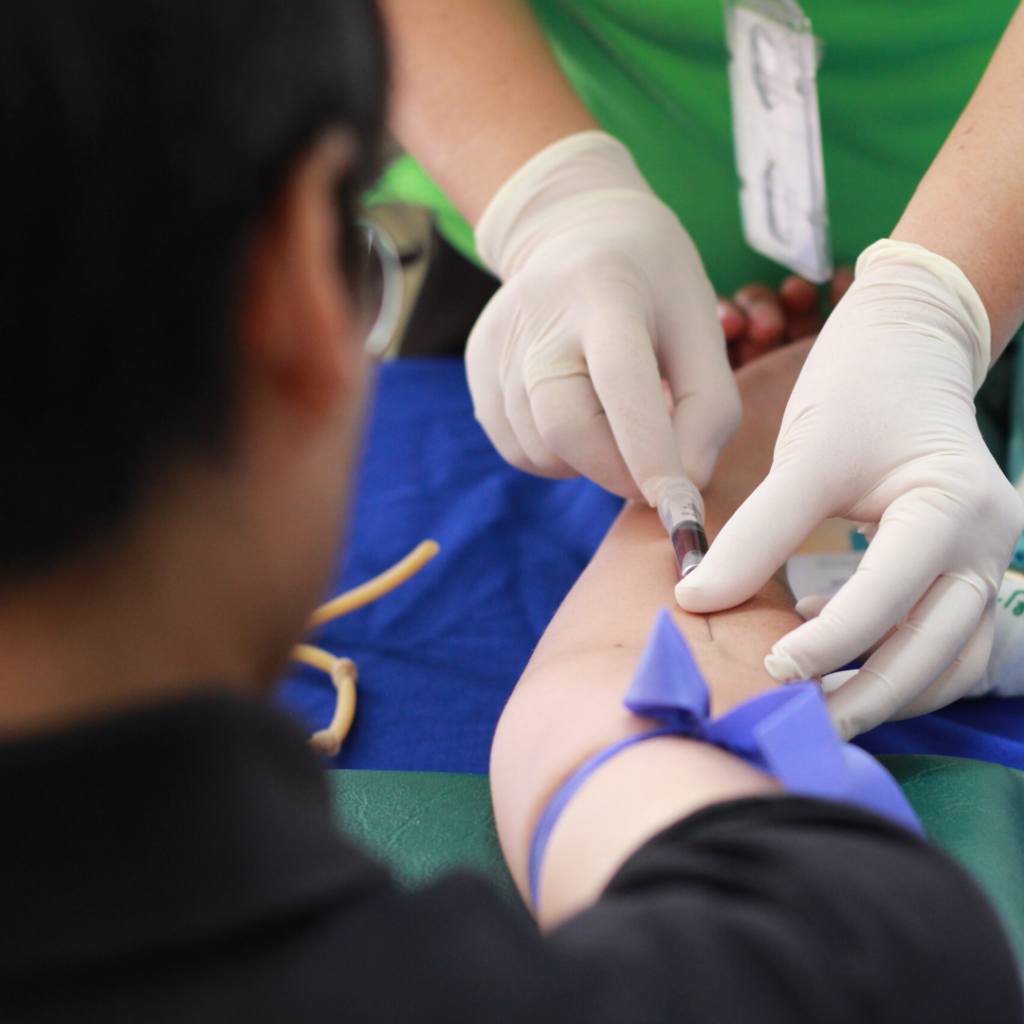In light of the COVID-19 crisis, the FDA recently reduced the deferral period for “male [blood] donors who would have been deferred for having sex with another man and female donors who would have been deferred for having sex with a man who had sex with another man” from 12 months to 3 months. Yet these newly reduced restrictions on blood donations are not a sufficient step forward — they continue to be based in prejudice against LGBTQ+ people, and put our country’s health at risk.
The National LGBT Bar Association and Foundation, the country’s largest organization of lesbian, gay, bisexual, transgender (LGBT) and allied legal professionals that was born out of the HIV/AIDS movement, has made ending this discriminatory blood ban one of its most pressing issues. The LGBT Bar’s Executive Director, D’Arcy Kemnitz, said of the policy, “The FDA’s current policy is discriminatory and does not properly consider all factors in assessing risk in donors. It is increasingly clear that moving away from a policy based solely on one’s sexual identity and history makes room for those willing and able to help to volunteer.” Law student members of the LGBT Bar are working with LGBTQ+ organizations on law school campuses to raise awareness of the FDA’s current policy. By facilitating advocacy efforts, the LGBT Bar and its Law Student Congress hope to bring about a change in the FDA’s policy and persuade it to adopt a risk-based analysis determined by science instead of sexual orientation.
It’s so important that we stand up against any policy that makes a blanket judgment about a group of people. Even under the updated guidelines, a person who has had unprotected sex just days before can donate blood, while a gay or bisexual man who has had sex with another man within three months cannot donate, regardless of factors like the usage of condoms, monogamy, and taking HIV prevention medicine like PrEP. The difference is unscientific and clearly rooted in animus and bias against LGBTQ+ people.
The LGBT Bar’s “End the Gay Blood Ban” Campaign is advocating for the FDA to replace its current policy with an individualized risk-based assessment, which is currently used in Italy and Argentina. The ability to donate blood would depend on one’s personal risk factors, not one’s sexual orientation. In February 2017, the American Bar Association issued a resolution calling on the FDA to implement this new, nondiscriminatory risk-assessment, yet the FDA has not heeded this call.
In a time unlike any other we have experienced in modern history, hospitals are more in need of blood than ever. The American Red Cross estimates that every two seconds, someone in the U.S. needs blood. Keeping these regulations in place is not only ignorant, but a public health danger.
According to the FDA, “based on recently completed studies and epidemiologic data, [they] concluded that current policies regarding certain donor eligibility criteria can be modified without compromising the safety of the blood supply.” Without data showing that something relevant happens in that three months, the new three month period seems to be just another arbitrary timeframe. The FDA’s willingness to go down to a three month-period ban in response to a blood shortage crisis certainly creates the impression that the 12 month ban has been in place arbitrarily, and destroys the FDA’s claim that that longer ban was necessary for public health. Additionally, since the FDA changed their policy in response to the COVID crisis, it is currently temporary, and we do not know whether they intend to make it permanent once LGBTQ+ people are no longer needed in order to shore up a critically low national blood supply.
In the Hill’s piece on the reduction of the restrictions, they wrote that “Any blanket policy directed toward a specific identity or community — and particularly one that has been stigmatized and marginalized for decades — is misguided and rooted in lasting bias.” In the 1980s, the FDA issued an indefinite ban on blood donations from sexually active gay and bisexual men. In 2015, the ban was reduced, requiring gay and bisexual men to be abstinent for 12 months before becoming donors. There is no evidence that the new three month ban, in the absence of a personal risk assessment, is any more likely to protect eventual blood recipients from contracting HIV than the previous 12 month policy.
LGBTQ+ advocacy groups have been speaking out against this oppressive and close-minded restriction since its conception. The Human Rights Campaign objected to the policy in the 80s and continues to advocate against it today. Recently, GLAAD released an open letter to the FDA from over 500 infectious disease and HIV specialists, public health professionals, clinicians, healthcare administrators, trainees and researchers recommending an immediate reevaluation of their new guidelines and to eliminate the “scientifically outdated ban”.
“As you well know, we are on the precipice of a critical nationwide shortage of blood products,” the letter reads. “This severe shortage could be alleviated if antiquated restrictions lacking scientific data were responsibly lifted.”
It has never been more important to prioritize science over prejudice. Given the current health crisis and shortage of blood, now is the time to set aside old, unjust ideas in favor of proven science.

